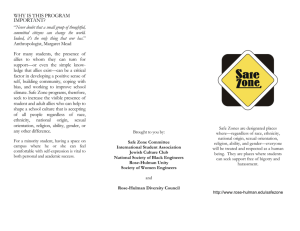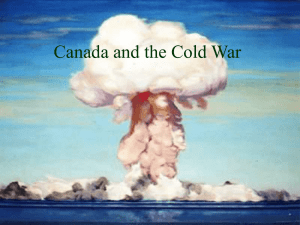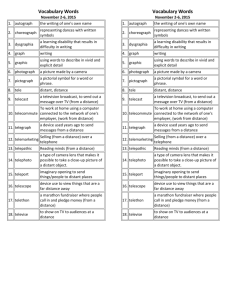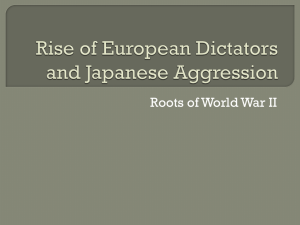BALANCE OF THREAT ~ STEPHEN WALT
advertisement
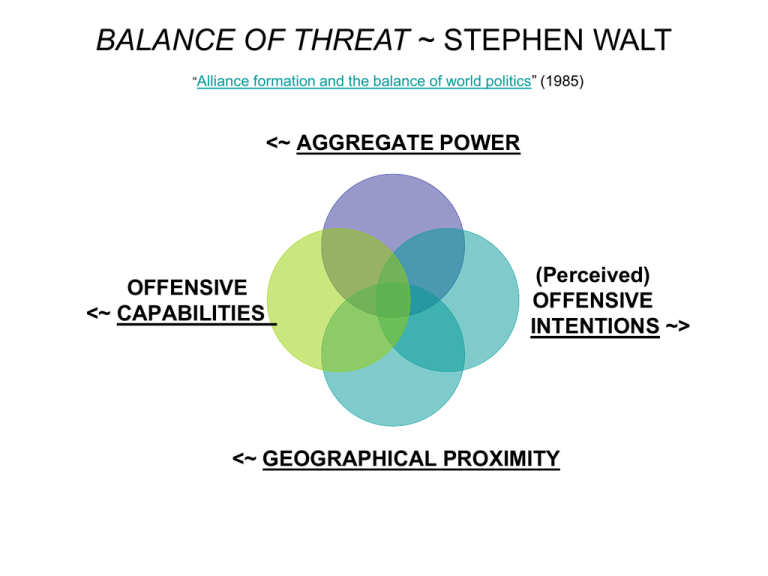
BALANCE OF THREAT ~ STEPHEN WALT “Alliance formation and the balance of world politics” (1985) <~ AGGREGATE POWER OFFENSIVE <~ CAPABILITIES (Perceived) OFFENSIVE INTENTIONS ~> <~ GEOGRAPHICAL PROXIMITY Perceptions of intent play an especially crucial role in alliance choices (12). More than any other factor, geography explains why so many…significant powers…ally with the US (36). This analysis stands many familiar notions of geopolitics on their heads, e.g Halford Mackinder (36, fn). • Because the Soviet Union is the largest power on the Eurasian landmass, it poses a significant threat to the many states on or near its borders. Although geographical proximity may in some cases make it easier for the Soviet Union to use military power against its neighbours, this situation also provided the independent states of Eurasia with a powerful incentive to seek allies elsewhere to deter such an attempt or to defeat it should it occur. (36) • Because the PRC (China) is the largest power on the Asian landmass, it poses a significant threat to the many states on or near its borders. Although geographical proximity may in some cases make it easier for the PRC to use military power against its neighbours, this situation also provided the independent states of Asia with a powerful incentive to seek allies elsewhere to deter such an attempt or to defeat it should it occur. ? • For the medium powers of Western Europe and Asia, the U.S. is the perfect ally. It is sufficiently powerful to contribute substantially to their defence, it is driven by its concerns to oppose Soviet expansionism, and yet it is sufficiently distant from these allies so that it does not itself pose a significant threat. Thus, the United States is geographically isolated [distant] but politically popular, while the Soviet Union is politically isolated as a consequence of geographic proximity. (36) • For the medium powers of Asia, the US is the perfect ally. It is sufficiently powerful to contribute substantially to their defence, it is driven by its concerns to oppose Chinese expansionism, and yet it is sufficiently distant from these allies so that it does not itself pose a significant threat. Thus the United States is geographically isolated [distant] but politically popular, while the PRC is politically isolated as a consequence of geographic proximity. ?

